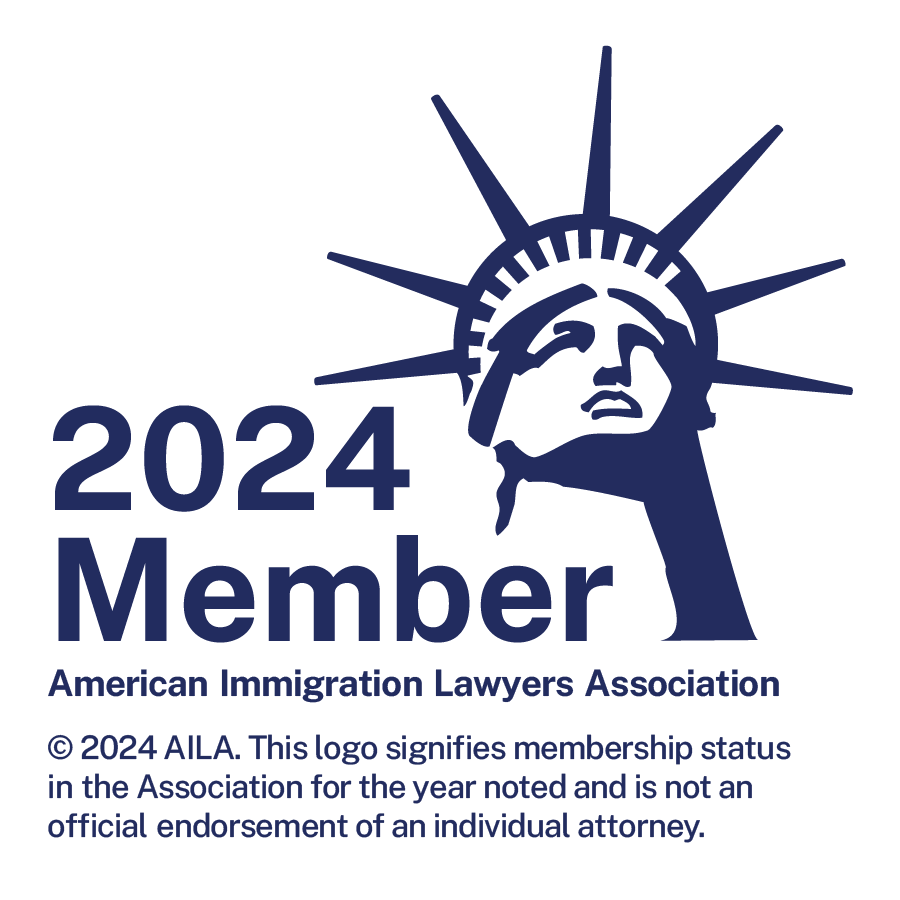
Family Immigration
If you’re a citizen or a lawful permanent resident of the United States, you may be able to bring your family members here on a legal path to citizenship. Not all family members qualify, but the U.S. currently gives out just under 500,000 family-based visas per year – and your family could be eligible for this type of entry.
For most people, it makes sense to work with a DFW immigration attorney who understands how difficult it is to be apart from your family and the people you love.
Family Immigration Through Visas and Green Cards
Family immigration through visas and green cards can lead to naturalization, but the process can be complicated and can require a significant amount of paperwork. Working with an experienced immigration attorney can take the tremendous weight off your shoulders so you’re free to focus on what’s most important: Your family and loved ones.
Family-Based Visas and Green Cards
If you’re a citizen or lawful permanent resident of the U.S., your family members could be eligible to apply for a visa or green card. Your family members may include immediate relatives, such as:
- A Spouse
- Your Parents
- Your Unmarried Children under the age of 21, including adopted children
- Orphans who will be adopted in the U.S. by a U.S. citizen
These family members get preference over more distant family members, but other family members may also qualify. You could be able to sponsor relatives such as:
- Unmarried children over the age of 21
- Married children of U.S. citizens
- Brothers and Sisters of U.S. citizens who are age 21 or over
Generally, you must be a citizen or a lawful permanent resident, over the age of 18, to sponsor a family member. In order to sponsor a relative, you must also live in the U.S. (although there are a few exceptions). If you qualify, you’ll have to file petitions and provide an affidavit of support that states that you’ll help your family members financially until they are able to support themselves in the United States.
What About Family Preference Categories?
Immediate relatives, including spouses, parents and unmarried children under the age of 21, are given preference over other relatives. After immediate family, other relatives are put into preference categories. Those categories include:
- This category is for U.S. citizens’ unmarried adult children – who are 21 and over.
- This category applies to spouses and unmarried children – who are under age 21 – of lawful permanent residents.
- People in this category are unmarried adult children- who are 21 or older – of lawful permanent residents.
- This category is reserved for married children of U.S. citizens.
- People in this category are brothers and sisters of adult U.S. citizens.
Some relatives are eligible for permanent residence immediately. Others must apply for K-3 or K-4 visas, depending on their relationship to the U.S. citizen or lawful permanent resident. If a person applies for and receives a K-3 or K-4 visa, he or she can later apply for a green card (permanent residence) and eventually, naturalization.
K-1 Fiancé Visas
Fiancés of U.S. citizens may be eligible for a K-1 visa, which allows the person to come to the United States to get married. In order to qualify, you must intend to marry each other within 90 days of your fiancé’s arrival in the country. Your marriage must also be valid, which means you both have a sincere intent in establishing your lives together.
The U.S. citizen must petition the government on behalf of his or her fiancé. Both parties must:
- Be legally free to marry – any prior marriages have ended due to divorce, annulment or death
- Have met in person at least once, within the past two years, before filing the petition. There are exceptions for cases if meeting would violate long-established cultural customs or social practices or if meeting would result in extreme hardship to the U.S. citizen
After you marry your fiancé, he or she can file an adjustment of status petition. If approved, that petition will turn the visa into a green card and make your spouse a lawful permanent resident of the United States.
Family-Based Green Cards
In order to directly apply for a green card, which gives a person lawful permanent residence in the United States and allows that person to work here, you must meet certain criteria. You can apply if you’re the immediate relative of a U.S. citizen (such as a spouse, unmarried child under the age of 21, or the parent of a U.S. citizen).
A Dallas immigration attorney can help you determine whether you or your family member qualify for a family-based green card.
What About Military Service Members and Family-Based Immigration?
Military service members and veterans of the U.S. Armed Forces – and, in some cases, their dependents – qualify for citizenship under special provisions of the Immigration and Naturalization Act. Spouses of U.S. citizen service members may be eligible for expedited naturalization and expedited processing. In some cases, spouses can become naturalized while abroad – without even coming to the United States first. Your attorney can help guide you through the process if you’re a military member stationed abroad.
Naturalization Requirements for Family Members
After your family member has met the appropriate requirements, he or she may be eligible for naturalization. The law requires you to:
- Be a permanent resident – a green card holder – for at least three years
- Be 18 or older
- Be married to a U.S. citizen during the three years preceding your application
- Have continuous residence in the U.S. as a lawful permanent resident
- Be physically present in the U.S. for at least 18 months of the past three years
- Be a person of good moral character
There are other requirements, too, which your DFW immigration attorney can explain to you.
Do You Need to Talk to an Attorney About Family Immigration?
If you believe your family members qualify for visas or green cards to immigrate to the United States, we may be able to help you. We can evaluate your situation and, if your family members are eligible, we can file petitions that help reunite you and your family in the United States.
Call us today to schedule a consultation to discuss your situation with an experienced immigration attorney.
Forbes Magazine recognizes Cantey Hanger on firm’s work on behalf of ExxonMobil.
January 22, 2019
15 Cantey Hanger attorneys named Super Lawyers.
September 10, 2018
Best Lawyers’ recognizes 11 Cantey Hanger LLP attorneys.
August 15, 2018
Cantey Hanger is Recognized as One of 20 Companies in Fort Worth to Break the 100 Year Mark.
December 11, 2018
FORT WORTH, TEXAS – Experienced business immigration law attorney Susan Lane has joined Cantey Hanger LLP as a partner.
Since being licensed in Texas in 1986, Lane’s practice has focused exclusively on immigration and nationality law. She has a wealth of experience representing a wide range of employers – such as universities, high tech companies, multi-national corporations, start-up businesses, manufacturers and churches – in complex, employment-based immigration matters.
Her practice includes non-immigrant petitions as well as immigrant cases, including PERM labor certifications, petitions for outstanding professors and researchers, petitions for multi-national executives and managers, and national interest waivers.
Lane earned her J.D. from The University of Texas at Austin in 1986. She graduated Phi Beta Kappa and with highest honors from the University of Oklahoma with a Bachelor of Arts in Letters. She is an active member of the American Immigration Lawyers Association, the State Bar of Texas, the Tarrant County Bar Association and Southlake Chamber of Commerce.
She has a son in college and a daughter in high school. They live in Southlake.
November 29, 2018
U.S. Citizenship and Immigration Services website: www.uscis.gov
Retrieve I-94 record and travel history: www.cbp.gov/I94
Monthly Visa Bulletin: https://travel.state.gov/content/visas/en/law-and-policy/bulletin.html
AR-11 link for change of address: https://egov.uscis.gov/coa/addressChange.do
Physician link for medical exams for permanent residence: https://my.uscis.gov/findadoctor


